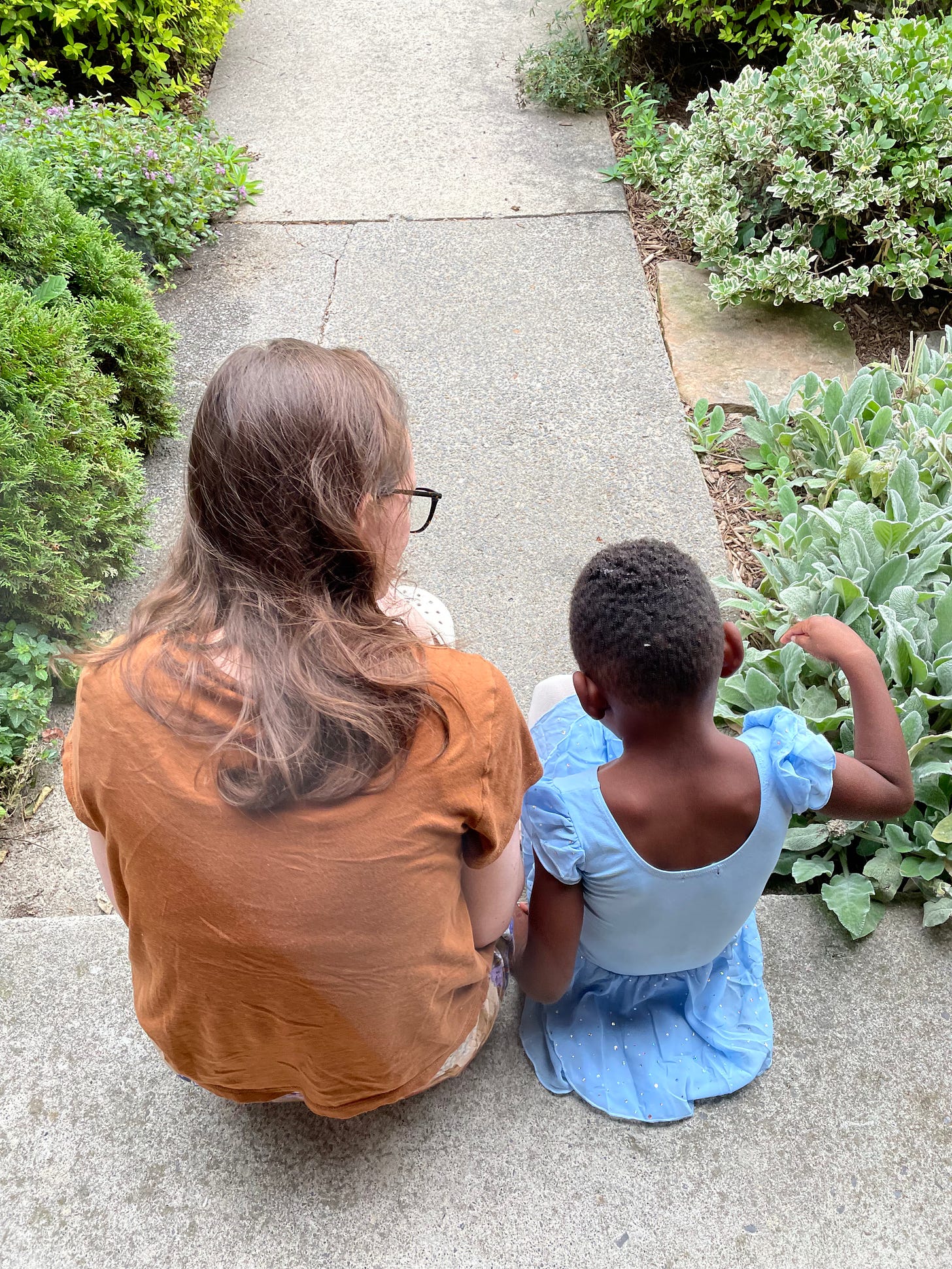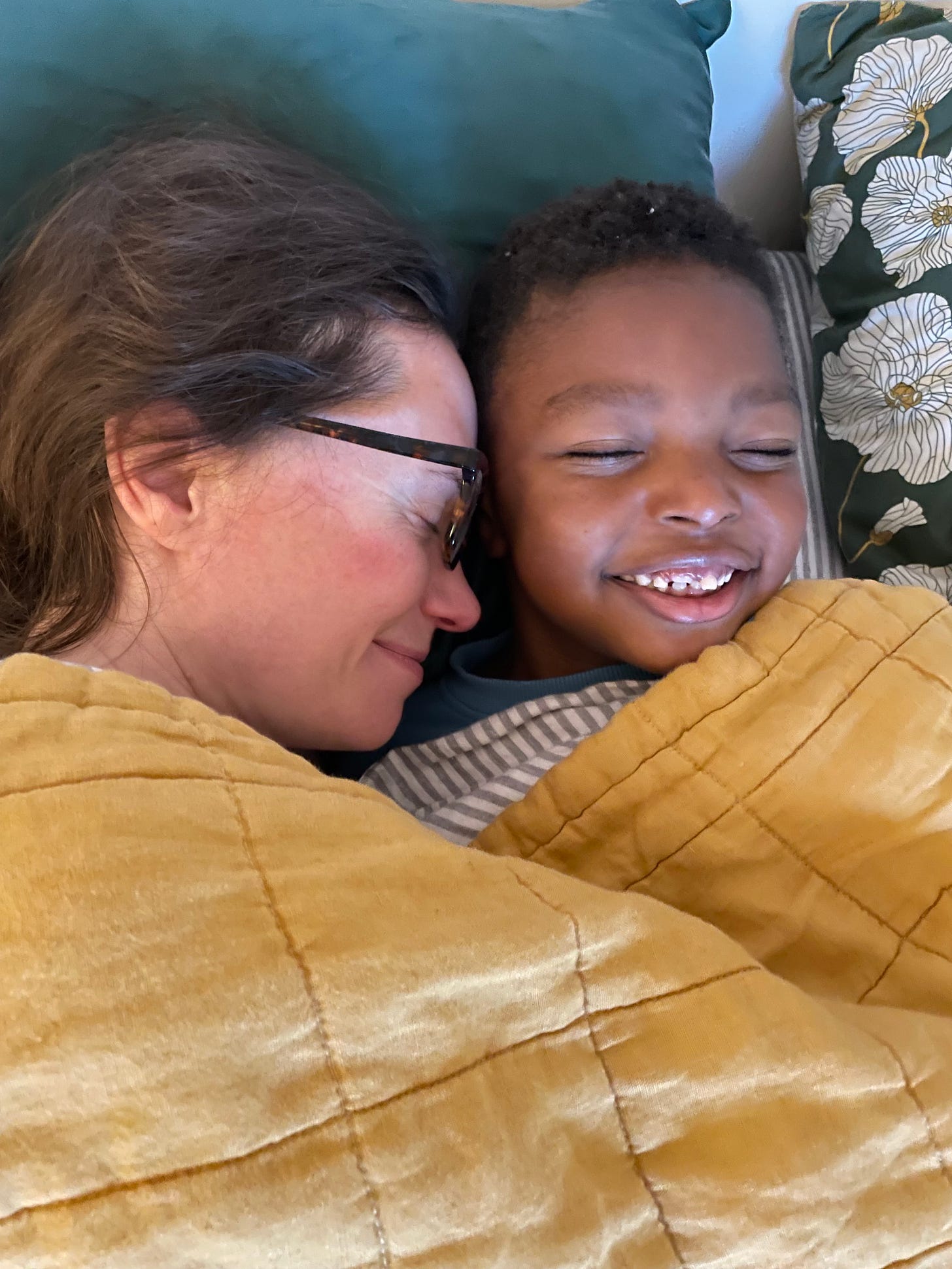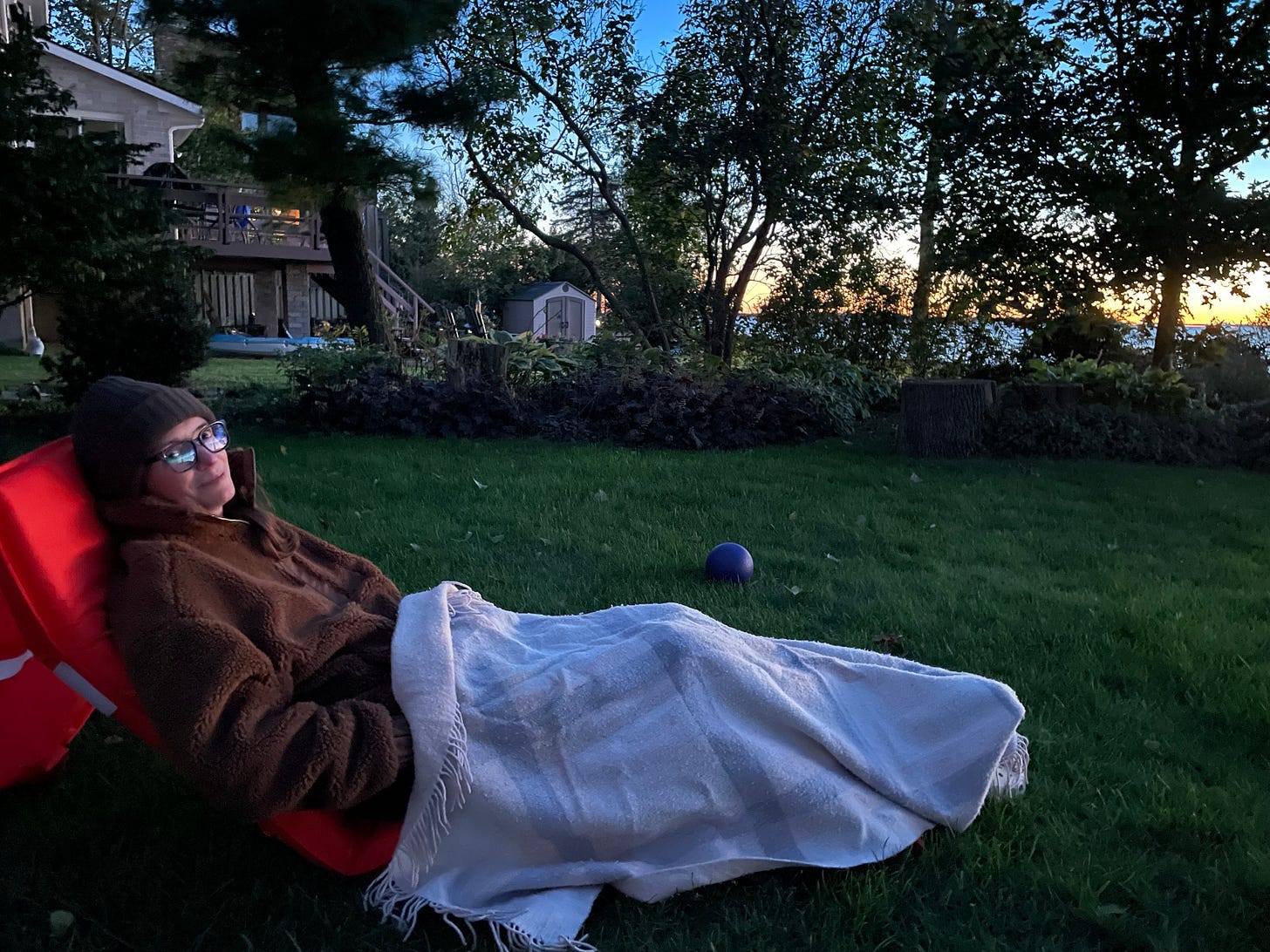Go away, you fool
As I told a friend the other day, September and October have revolved around mucus management in our house. First, Khalil caught covid in late August. Once he recovered, he started the school year, where he caught two snot-forward viruses in a row.
So many tissues. So much steam.
Needless to say, we are grateful that he’s stayed out of the hospital. That hasn’t always been the case with Khalil and congestion.
But virus after virus dysregulates us all emotionally and physically — we become a grumpy and volatile bunch, except for our hero, Honeypuppy. There are moments of levity, of course, like when Khalil tries to express his frustration verbally. Because we are pretty careful about what shows he watches and how we speak to each other, his collection of stored insults is spare. Last night, he looked into my eyes, furious, and said,
“Go away, little boy. You are A FOOL.”
I deserve an award for keeping that laugh off my face.
Also, no one could possibly understand why he has started calling me “Granny” and David, “Granny’s husband.” But I’ll take it.
Contagion aside, I’ve decided, officially, that October is my favorite month in Ontario. The humidity vanishes, but the grass is still green. The apples out front are ripe, and, this year especially, the trees look like they are lit from within with red and orange.
The sunsets have been more beautiful lately, and, after Khalil falls asleep, David and I like to sit right by the water, listening to the waves. I suspect it’s due to lower-than-usual water levels, but regardless of the reason, our bird visitors have been more diverse — herons and loons, and even an egret.
There is also this quote I’ve found comforting lately. At the start of Lady Chatterley's Lover, written and set in the years after World War I, D.H. Lawrence, who had survived the Spanish Flu, writes this:
Ours is essentially a tragic age, so we refuse to take it tragically. The cataclysm has happened, we are among the ruins, we start to build up new little habitats, to have new little hopes. It is rather hard work: there is now no smooth road into the future: but we go round, or scramble over the obstacles.
To me, that quote was like taking a deep breath. There is something so satisfying about acknowledging that, yes, this is — we are living in — essentially, a tragic age. In the years before writing Lady Chatterley's Lover, Lawrence wrote to his friends about the Spanish Flu and his distress over its associated losses and how it was changing the world. I don’t think it’s a coincidence that those sentences resonated with me, with the events of the last few years.
I read Ed Yong’s recent piece about the pandemic and the state of things and was reminded, again, of the great collective (and unnecessary) losses we have and continue to endure.
America experienced the largest life-expectancy decline of any wealthy country in 2020 and, unlike its peers, continued declining in 2021. If it had fared as well as just the average peer nation, 1.1 million people who died last year—a third of all American deaths—would still be alive.
Reckoning with the reality — that we have so fundamentally failed each other — feels like it might break me. The cataclysm has happened. (And, it goes without saying the pandemic is only one way that we continue to disregard the lives of others.)
Writing a book, as he did, and like I am doing now, can feel absurd in the face of so much loss and uncertainty. But, as Lawrence wrote, we start to build “new little habitats.” Isn’t that the miraculous thing about being human? How insistent we are on building and rebuilding again?
So, every morning, I set my timers, and I work on my books. Across my walls, I’ve taped calendars with when each chapter is due and when it will be revised. Recently, I asked on Instagram if it would be interesting for me to describe the day-to-day process of writing these books, and to my great surprise, the majority of people said yes. So, expect that newsletter in the coming weeks.
In the meantime, as always, I wish you moments of joy and connection. For the space for noticing birds and leaves and to feel as if, even among the ruins, you are finding new little hopes.









